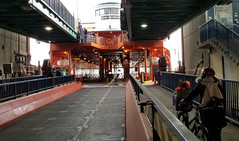
- Click Here For More Specific Information On:
- Ash Aryal
byAlma Abell
Pre-planning a funeral can be one of the most loving things that a person does for their family. Nothing can eliminate the grief that follows the death of a loved one, but it is possible to take away some unnecessary problems. Professionals such as Evans Funeral Chapel and Cremation Services assist with Pre-planning in Forest Hill, in order to make their clients’ final wishes known, lift financial burdens, and more.
Many senior citizens who choose Pre-planning in Forest Hill want to ensure that their survivors’ inheritances are not reduced by funeral costs. Clients of any age often contact funeral professionals, who help them prepay and design services around their wishes and budgets. These experts offer a range of packages that can include cosmetology, a casket, viewing, services, burial, and more. Clients can also choose arrangements that are as simple as a cremation with no services.
The time immediately following a death can be traumatic, especially since loved ones often have to make important decisions very quickly. Pre-planning eliminates this burden, since funeral professionals will immediately begin to take necessary steps, according to their clients’ wishes. The process can help avoid the family fights that can occur when no instructions are left and everyone has a different idea of what the deceased wanted.
Many people arrange and pay for their own services because they have very definite ideas about what their services should be like. Some choose unusual arrangements, in unorthodox places. They may want to pre-order a specific casket design, flowers, music, and programs. Funeral professionals specialize in carrying out client wishes to the letter. They will design funerals that range from basic cremation to elaborate church services. Pre-planning also allows clients to notify funeral directors of their affiliations with the military or organizations. These may qualify them for military burial, honor guards, or other special tributes.
Pre-planning funerals is often a way that people show their love for family members. When they arrange and pay for their own services, they save loved ones many financial and emotional burdens that can follow death. Pre-planning is also a way for people to ensure that they have exactly the funerals they want.

